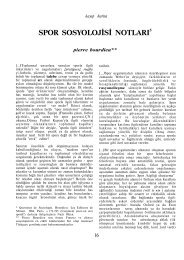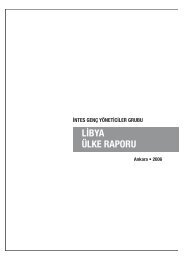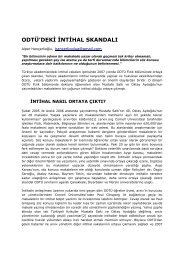Untitled
Untitled
Untitled
You also want an ePaper? Increase the reach of your titles
YUMPU automatically turns print PDFs into web optimized ePapers that Google loves.
4 INTRODUCTION<br />
of culture and the quotidian, mapping the terra incognita of salaried<br />
employees in the la�t years of the Weimar Republic.<br />
Like almost all his other writings from the Weimar period, Die Angestellten<br />
first appeared (in instalments) in the feuilleton - i.e. the cultural<br />
section - of the prestigious Frankfurter Zeitung. Following studies in<br />
architecture, sociology and philosophy, Kracauer worked for this paper<br />
from 1921 on - initially as a regular freelance contributor, after 1924 as<br />
a full editor, and from 1930 until his February 1933 flight from Nazi<br />
Germany as cultural editor for the paper's Berlin pages. From late April<br />
to July 1929 Kracauer stayed in Berlin to carry out the research for his<br />
study on employees. In October the text was completed, but objections<br />
from the paper's editorial board delayed its publication.4 Due to the<br />
support of Benno Reifenberg, the editor of the feuilleton section to<br />
whom Die Angestellten is dedicated, its pre-publication finally went<br />
forward in December. 'A sensation has been handed us', Reifenberg<br />
wrote to the newspaper's editor-in-chief Heinrich Simon," and the<br />
readership's reaction proved him right. In January 1930, the study was<br />
published as a book.';<br />
Kracauer subtitled the book with a phrase which, with laconic brevity,<br />
defines the viewpoint, method and claim of his investigation. What his<br />
study aims to be is neither a scientific treatise 'about', nor a literary<br />
reportage 'on', the salaried class. Rather Kracauer adopts the role of<br />
the ethnologist, who sets off on a sociological 'expedition' to a domestic<br />
'abroad' and reports 'from the newest Germany' (a literal translation<br />
of the German original, Aus dem neuesten Deutschlanrl) on the salaried<br />
employees as if from some exotic foreign land. Kracauer does not let<br />
slip the opportunity to juxtapose the 'exoticism' of this world with that<br />
of 'primitive tribes at whose habits' the employees 'marvel in films'<br />
The ethnological metaphor, however, is not meant merely ironically<br />
but is closely connected with the method and concern of his study. For<br />
Kracauer really is setting off. Leaving statistics and learned studies<br />
behind, he embarks on an empirical inquiry into the spheres of<br />
existence, habits, patterns of thought and manners of speech of salaried<br />
employees. He talks to the employees themselves, to union representatives<br />
and to employers; he visits offices and firms, labour exchanges and<br />
Labour Courts, cinemas and places of entertainment; he studies company<br />
newspapers, classified advertisements and private correspondence.<br />
His procedure has occasionally been compared with the method of<br />
'participant observation' that the Lynds were developing at roughly the<br />
same time in their study on Middletown. Yet Kracauer's approach is<br />
characterized by a highly self-conscious individualism which resist�






